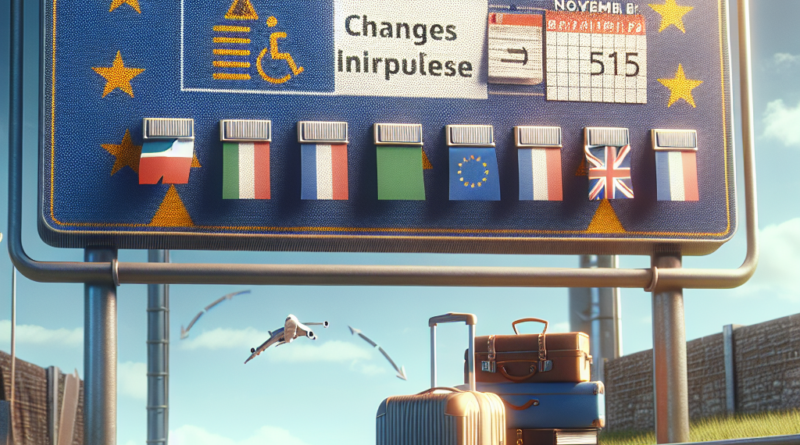Traveling to France: What Changes for Italians Starting November 1st
“`html
Rising Illegal Immigration Amidst Global Conflicts
The ongoing and escalating conflicts around the world are fueling illegal immigration at an alarming rate.
This influx brings about dire consequences not only for the migrants themselves, who face numerous and severe risks, but also for the host or transit countries experiencing significant turmoil.
Destination countries are thus tasked with ensuring the protection of migrants’ rights while simultaneously combating related crimes without compromising internal security.
France’s Tough Stance Starting November 1
Beginning November 1, 2024, France will implement temporary border checks with neighboring countries including Luxembourg, Belgium, Germany, Switzerland, Spain, and Italy.
These checks are set to remain in place at least until April 2025, impacting all air, land, and sea routes.
Paris conveyed this decision to the European Commission, which emphasized that such measures should be temporary and in proportion to identified threats, and should be lifted once conditions improve.
The French government has expressed significant concern regarding the general increase in migrant flows amid geopolitical instability and ongoing violent conflicts in various regions.
More specifically, there is alarm over rising incidents of violence at transit points—an alarming consequence tied directly to the surge in illegal immigration and escalating tensions.
France aims to enforce stricter measures against crimes like human trafficking and irregular immigration while also monitoring security threats such as terrorism.
This update affects all travelers, including Italians, across all transportation modes, particularly heavy goods vehicles which are likely to face disruptions.
Travelers should be aware of potential delays but need not worry as long as they present valid identification documents.
Wider Implications: Other Countries Taking Similar Actions
France is not alone in reinstating border checks for security reasons.
Many EU countries are united in the fight against illegal immigration, although any such efforts should also involve provisions for assisting those in genuine need.
Germany, for example, has already implemented some border restrictions effective September 16, 2024, affecting its borders with France, Belgium, the Netherlands, Luxembourg, and Denmark.
Interior Minister Nancy Faeser highlighted this strategy as necessary due to the lack of adequate protections for the EU’s external borders, stressing the importance of collaborative efforts on migration issues.
In parallel, Austria has extended its border checks with Slovakia and the Czech Republic from October 16, 2024, until April 15, 2025.
Likewise, Denmark is extending its border controls with Germany from November 12, 2024, until May 1, 2025, amid rising migration concerns.
Meanwhile, Norway reintroduced temporary border checks with Sweden and Finland, with potential extensions anticipated beyond October 22.
Though the Netherlands has yet to enforce announced measures, Sweden is currently pursuing alternative strategies to border closures, such as significant financial incentives for repatriation.
In Italy, border controls with Slovenia have been active since October 21, 2023, and are projected to last until December 21, 2024.
Given Italy’s historical pattern of aligning with internal EU closures during emergencies, similar actions might soon be expected from the Italian government.
“`




